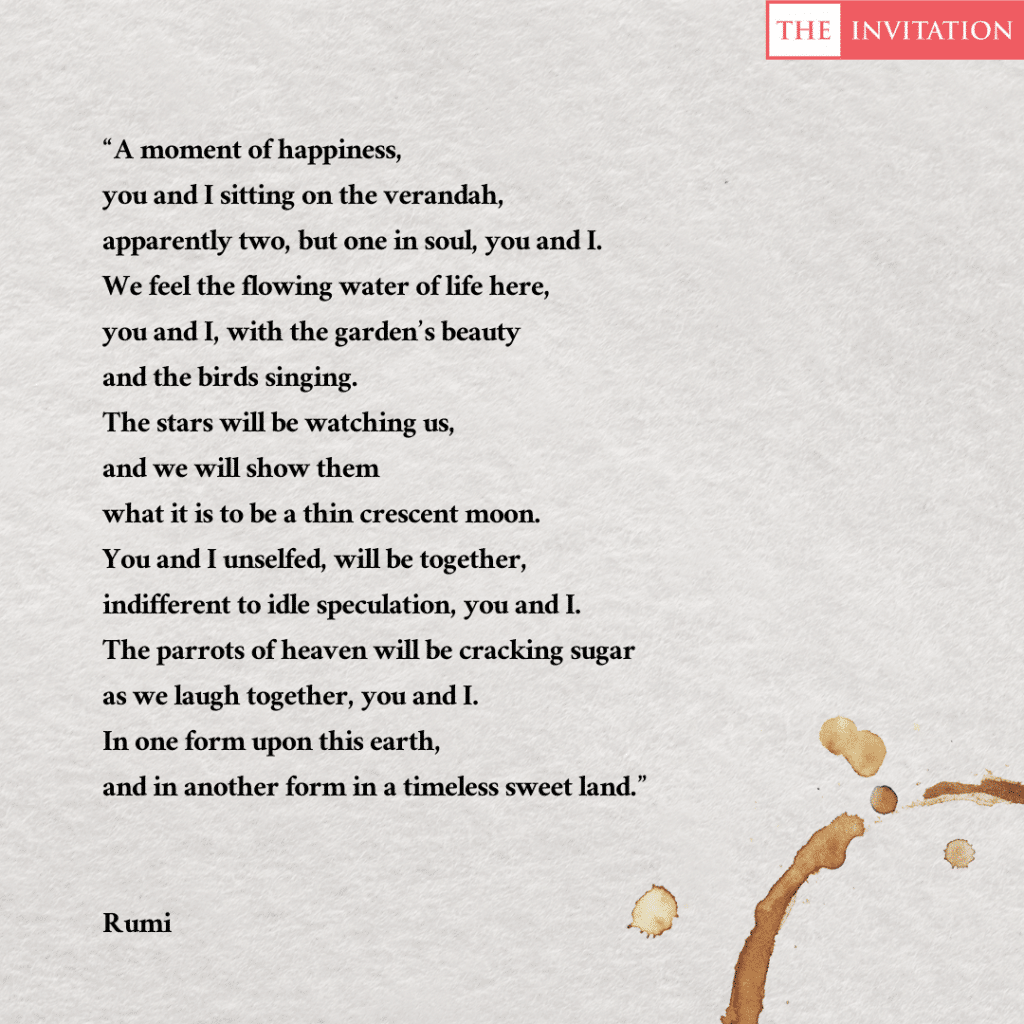The relationship between race and religion has frequently been a subject of intense scrutiny and debate, particularly within the Bahá’í Faith where unity is a fundamental tenet. This reflection endeavors to explore the teachings of the Bahá’í Faith vis-à-vis the poetic genius of Jalāl ad-Dīn Muhammad Rūmī, often known simply as Rumi. A 13th-century Persian poet, Rumi’s works encapsulate profound spiritual insights that resonate with Bahá’í ideals, particularly the oneness of humanity. In exploring this interconnection, we will delve into themes surrounding identity, race, and the transformative quality of religion that transcends societal boundaries.
Rumi’s poetry often serves as an allegorical tapestry woven with the threads of universal love and spiritual awakening. His metaphors demonstrate a seamless interconnection between the material and the divine. In his verse, the essence of the human experience is illuminated, urging individuals to rise above sectarianism. As Bahá’í teachings advocate a fresh paradigm — one wherein humanity operates as a single entity transcending race and religious affiliation — Rumi’s wisdom can be perceived as both a precursor to and validation of such principles.
The Bahá’í Faith posits that the acceptance of the oneness of humanity necessitates an acknowledgment of racial diversity as a gift rather than a barrier. Rumi’s life and work exemplify this concept, illustrating that the essence of humanity is not intertwined with external identities, but rather, with an intrinsic spiritual reality that binds us all. When he states, “The wound is the place where the Light enters you,” it becomes evident that Rumi’s perspective aligns with the Bahá’í understanding of suffering as a catalyst for spiritual enlightenment. The experiences of marginalization based on race can be transformative, nurturing resilience and fostering compassion, thereby illuminating pathways toward mutual understanding.
Baha’u’llah, the founder of the Bahá’í Faith, proclaims that “the earth is but one country, and mankind its citizens.” This declaration could easily echo Rumi’s assertions about the interconnectedness of all beings. The elemental ethos of love, as emphasized in both Rumi’s poetry and Bahá’í teachings, holds the potential to dissolve the barriers created by race, religion, and nationality. In this regard, the metaphor of a garden presents itself compellingly; each flower represents a distinct race or religion contributing to an exquisite tapestry of beauty. This abundant diversity, rather than detracting from the garden’s splendor, amplifies it, affirming that within unity lies diversity, and within diversity lies unity.
Rumi often employs the metaphor of the dawn to signify awakening. “The morning wind spreads its angel wings over the farms,” he writes, using the imagery of dawn to capture the moment of enlightenment. In alignment with the Bahá’í perspective, the dawn of a new age — the Age of Fulfillment — is characterized by the dissolution of racial prejudices, the fostering of interfaith dialogue, and the embrace of collective human dignity. As the Bahá’í Faith contends that humanity is on the precipice of a new epoch, Rumi’s exhortations to “let the beauty we love be what we do” serve as a prophetic reminder to actively engage in the creation of a harmonious society rooted in love and understanding.
This brings us to examine the pivotal role of education, a cornerstone of Bahá’í teachings that connects directly with Rumi’s philosophy. Education, particularly in fostering appreciation for cultural and racial diversity, engenders a profound understanding of our interconnectedness. Rumi eloquently illustrates this through his parables, encouraging individuals to perceive their commonalities rather than their differences. The Bahá’í principle of universal education underscores this sentiment, promoting the idea that when individuals are educated to embrace diversity, they become instruments of peace, enriching the broader societal tapestry. Consequently, Rumi’s verses can be seen not only as poetic gems but as calls to action towards greater inclusivity.
Furthermore, the journey towards spiritual enlightenment as articulated in both Rumi’s poetry and Bahá’í teachings encapsulates the idea of transcending personal and collective limitations. It speaks to a metamorphosis, akin to a caterpillar transforming into a butterfly, where the relinquishment of biases associated with race becomes imperative for true spiritual ascendance. Rumi’s analogy of the soul as both a wise teacher and a devoted student underlines the need for humility; one must actively seek to learn from diverse perspectives to attain a fuller understanding of truth, a pursuit endorsed emphatically by the Bahá’í Faith.
In conclusion, the confluence of Rumi’s poetic wisdom and Bahá’í teachings offers a profound lens through which to understand the pressing need for racial harmony in a world often fractious with division. The metaphors of the garden, the dawn, and the transformative journey illustrate eloquently how love and wisdom can transcend barriers. As individuals reflect upon these teachings, they are encouraged to cultivate a spirit of unity in diversity, allowing the light of understanding to illuminate the path toward collective progress. Rumi’s insights, aligned with Bahá’í values, articulate a resonant message for humanity: in recognizing our shared essence, we find liberation. Together, as members of the global community, we can weave a narrative that honors diversity while affirming the oneness of our existence.
